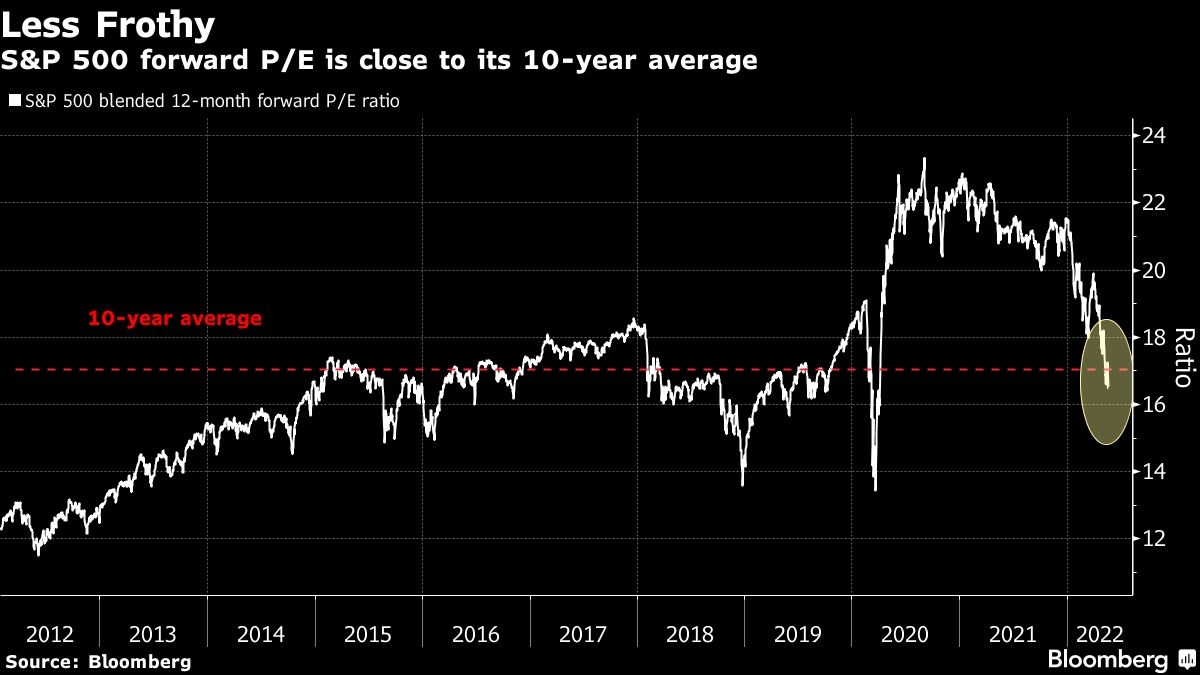May 19, 2022
'Recession is not inevitable,' Goldman says as stocks sink
, Bloomberg News
We are on the verge of a very serious global recession: Mark Yusko
US stock investors are pricing in stronger odds of a recession than are evident from positive macroeconomic indicators, according to Goldman Sachs Group Inc. strategists.
“A recession is not inevitable,” Goldman strategists led by David Kostin wrote in a note. “Rotations within the US equity market indicate that investors are pricing elevated odds of a downturn compared with the strength of recent economic data.”
As an example, Kostin cited the weakness in cyclical stocks compared with defensive sectors since January, which he said showed a 17 percentage points decline. “The relative performance of these two factors has closely tracked the level of the ISM index for more than a decade,” Kostin wrote. “The ISM currently stands at 55, but the relative performance of cyclicals versus defensives would imply a level below 50.”
US equities have been hammered this year as signs of stubbornly high inflation and a hawkish Federal Reserve raise the specter of an economic downturn. The S&P 500 is now down 18 per cent from its January peak and nearing bear market territory, after posting the worst daily drop since June 2020 on Wednesday after earnings reports from major US retailers raised worries about the hit to corporate margins from rising prices.

But while stocks are broadly expected to fall further, the view that fears of an imminent recession are overblown has been echoed by strategists ranging from Kate Moore at BlackRock Inc. to Marko Kolanovic at JPMorgan Chase & Co. Kolanovic is confident that things can get better for US stocks as the year progresses.
Comparing the S&P 500’s performance across 12 recessions since World War Two, Goldman’s Kostin said the US benchmark contracted from peak to trough by a median of 24 per cent. A similar decline for the index from its January record high would bring it close to 3,650 points -- nearly 7 per cent below current levels -- while the average decline of 30 per cent would take it to 3,360, Kostin said.
The futures market also implies S&P 500 dividends will drop by almost 5 per cent in 2023. “During the last 60 years, S&P 500 dividends have not declined outside of a recession,” the strategist said.
Among sectors, Kostin said defensive and quality factors have tended to outperform 12 months before the start of a recession. “Across five recessions since 1981, the median experience saw energy, staples, health care and utilities outperform the index,” he wrote.